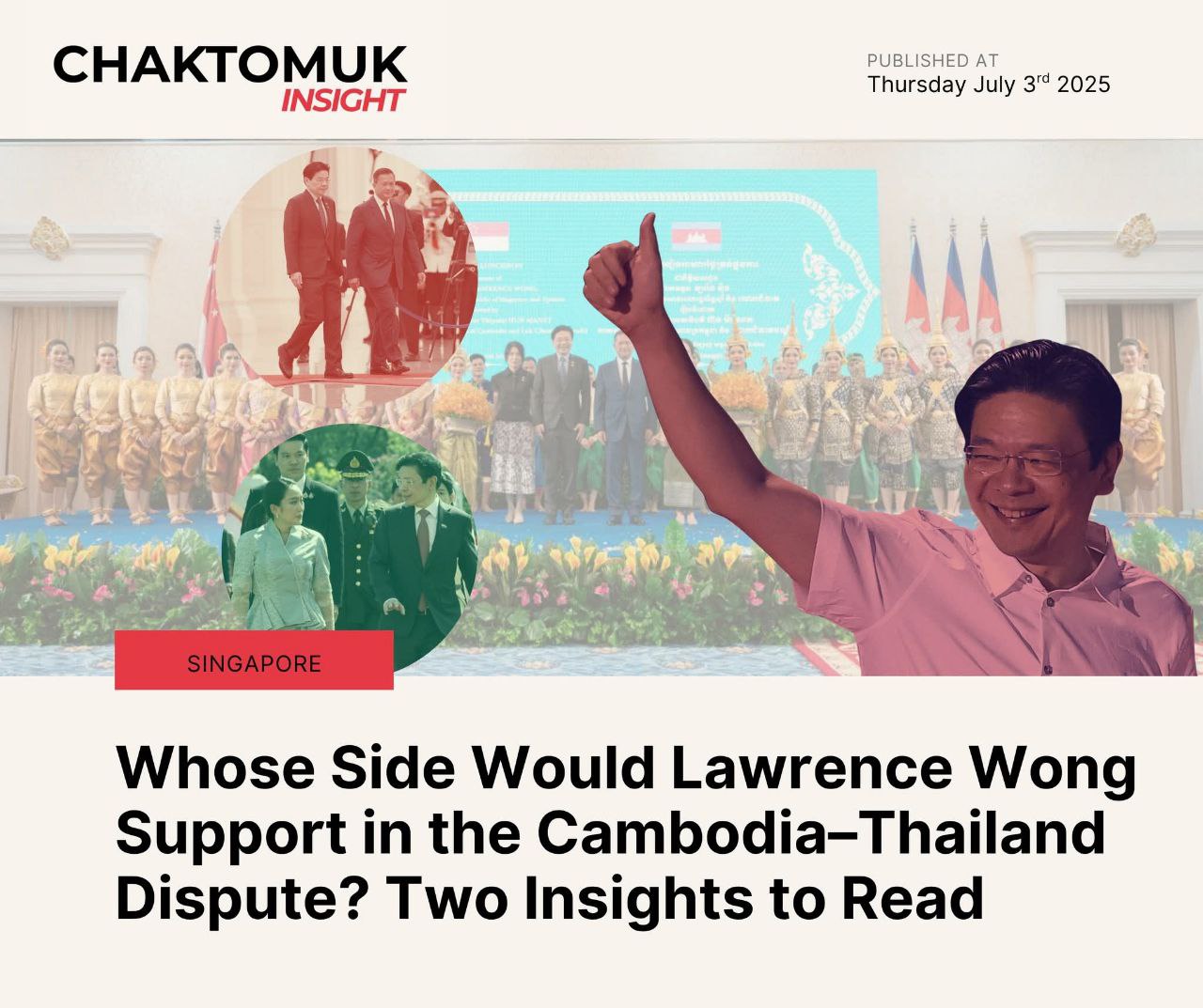As tensions escalate between Cambodia and Thailand, many observers wonder: where would Singapore’s Prime Minister Lawrence Wong stand?
 As tensions escalate between Cambodia and Thailand, many observers wonder: where would Singapore’s Prime Minister Lawrence Wong stand?
As tensions escalate between Cambodia and Thailand, many observers wonder: where would Singapore’s Prime Minister Lawrence Wong stand?
As tensions escalate between Cambodia and Thailand, many observers wonder: where would Singapore’s Prime Minister Lawrence Wong stand?
This article offers two key insights:
1. Weaponizing the Economy Is a Losing Game
Back on 25 June 2025, in the midst of heightened Cambodia–Thailand tensions, Prime Minister Lawrence Wong warned against the rising trend of countries “weaponizing economic interdependence”, that is, using trade, energy, or technological ties as leverage to pressure others under the guise of national security.
This warning came just as Thailand was threatening to cut off petroleum products, electricity, and internet access to Cambodia, hoping to force Cambodia to surrender.
PM Wong cautioned that such tactics often backfire, as they only motivate the targeted country to diversify, seek alternatives, and become more self-reliant. “What may appear to be leverage today,” Mr. Wong said, “may very well disappear.”
And indeed, that’s what unfolded: Thailand’s Prime Minister apologized for her spokesperson’s aggressive remarks, while Thai military officials have now turned around and requested Cambodia to reopen border crossings, even though it was Thailand that unilaterally shut them down without prior notice or discussion.
2. A Call for Peace and International Law
On 2 July 2025, PM Lawrence Wong visited Cambodia and held meetings with leaders including Samdech Hun Sen of Cambodia and Samdech Thipadei Hun Manet, Prime Minister of Cambodia. The ongoing border conflict was raised, and PM Wong expressed hope that both countries would resolve the issue peacefully and in accordance with international law.
Cambodia, for its part, has continued to urge Thailand to take the dispute to the International Court of Justice (ICJ) and has repeatedly called on Thailand to respect international legal norms. These calls have been consistent, even in the face of provocations.
Prime Minister Lawrence Wong’s remarks offer more than just a general warning. In a world where power is often measured by control over supply chains and infrastructure, true strength may lie in restraint and cooperation, not coercion. For Cambodia, this moment is not just about defending territory, it’s about showing that even small states can stand firm when guided by principle and international law. And for the region, Mr. Wong’s words remind us all: when economic pressure becomes a weapon, the target doesn’t break, it adapts.
Author: DeNotorious
